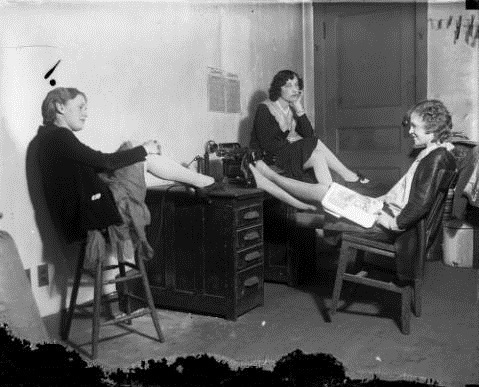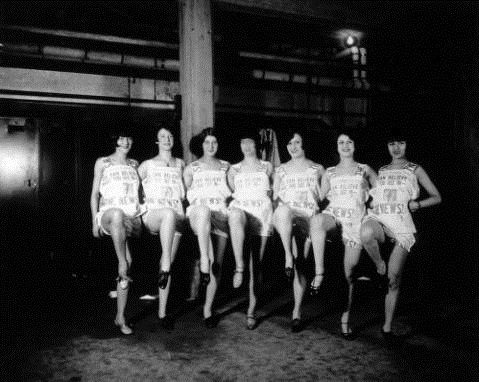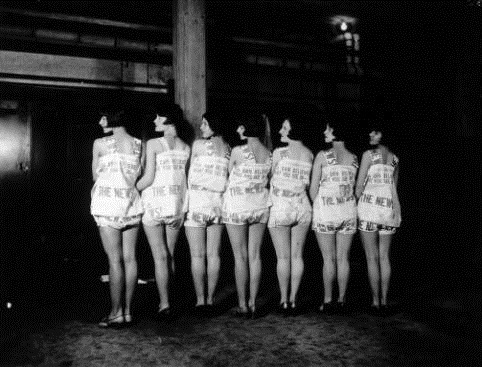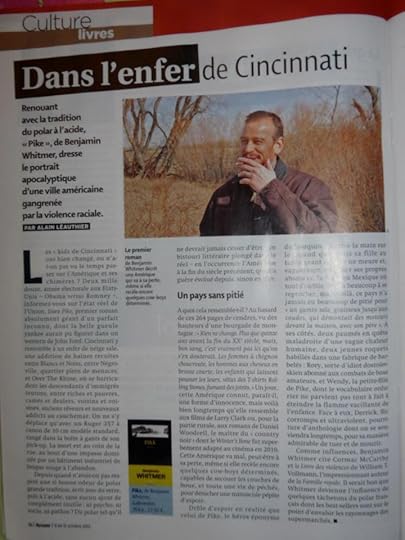Benjamin Whitmer's Blog, page 14
June 11, 2013
Desperado Philosophy
The only philosophy for me. I stumbled across Why Read Moby-Dick? by Nathaniel Philbrick in the library the other day and immediately snagged a copy. I’ve been toying with rereading my way through Melville lately and am thinking I don’t have any other choice, now that I’ve walked my ass firmly into middle age. Moby Dick‘s been my favorite book since I was in my early twenties, but I haven’t read it in almost ten years. And it’s time I did. Along with the rest.
One thing that Philbrick calls out is Melville’s description of a “desperado philosophy.” Which I remember loving, but have forgotten, in said middle age, to live. And it being the internet, I went online and found a great blog by the same name, with a wonderful summary. Here it is. Read it, love it, live it.
After a nasty brush with death while hunting large fellow mammals, still fairly early in the unfolding drama of the Pequod, Ishmael experiences a moment of profound philosophical immersion: There are certain queer times and occasions in this strange mixed affair we call life when a man takes this whole universe for a vast practical joke, though the wit thereof he but dimly discerns, and more than suspects that the joke is at nobody’s expense but his own.
Most acute at times of trial and tri bulation, such a wayward mood gives birth to a free and easy sort of genial, desperado philosophy. In this dissonant coupling of the words genial and desperado by way of a comma, Melville captures an essential element, possibly the most essential element, of a distinctly American philosophy that brings complex undertones to the simple Pilgrim hymns of our Shining City On A Hill, undertones of the sort that might produce a death metal soundtrack for the rock & rolling Humvees of Operation Enduring Freedom.
In an act of sober pragmatism, Ishmael draws up his Last Will and Testament, inviting Queequeg to serve as his lawyer, executor and legatee. Task accomplished, he then looks around himself with deep contentment, like a quiet ghost with a clean conscience. His earthly affairs in order, he is now fully prepared for a cool, collected dive at death and destruction, and the devil fetch the hindmost.
Internally complex and contingent, desperado philosophy can resolve itself in a wide variety of ways, depending on the character of individuals and the circumstances that confront them. Ishmael, for one, comes to embody the brave existential stoicism of a skeptical believer, someone with doubts of all things earthly, and intuitions of some things heavenly, as expressed in those many passages where Melville begins to sound like Kierkegaard. Yet inside a different bag of bones, driven by a different ethos and influenced by different historical conditions, desperado philosophy may well express itself as the most perverse sort of nihilism, a murderous cynicism that uses the senseless absurdity of the cosmos as a cover.
May 31, 2013
Rocky Mountain News Employees
Like I said the other day, I spend most of my free time kicking around the Denver Public Library’s microfilm machines looking at old newspapers. The number one resource, of course, is the Rocky Mountain News. I’ve got a long history of disliking the Rocky, one that runs back to the first I read about their involvement in the Sand Creek Massacre. (And the documents linked to aren’t the half of it; the Rocky was instrumental in drumming up the extermination fever that lead to that particular bloodbath.) And there was their horseshit coverage of a friend of mine, Ward Churchill, which was two-thirds lies and another third nonsense. But they’re also the longest running and best archived newspaper in Colorado, so I’m kind of stuck with them.
Anyway, when I’m not down on the Denver Public Library’s Western History and Genealogy floor, I can usually be found kicking around their Digital Collection. And I often come across stuff I’ll never use, but I can’t not share. Like this picture of working girls at the Rocky. I really have no idea why I’m posting it, except that I love every scenario I can dream up where it might have been taken. (Original here.)
Of course, the Rocky Mountain News did employ women for other than lounging around. But it looked more like this, I’m betting. (Original here.)
Which is not to say the Rocky was above titillating its customers. Lest we forget the Rocky Mountain News Dancers. (Originals here and here.)
May 20, 2013
Jim Harrison on Boston
I really have nothing against Boston. In fact, I love the town. And Dublin, too. But this is one of the greatest passages I’ve ever read. (From Wolf.)
Boston is the sort of city where much of the population strangles cats. Or it is easy to imagine Bostonians lashing their own feet with coat hangers, screwing holes in cabbages, having nightly dreams of back-scuttling Magdalene or some poor nun spied upon on the street. On the Common one morning I watched a priest crazily eating daffodils on his hands and knees and then throwing up a stream of yellow petals in the swan pond. A passing cop only said, “Good morning, father,” as if this were normal behavior. Much later in life I got the same sensation walking around Dublin; a chill in my body knowing that if these dark energies were ever released the power would equal that of an unpunctured baked potato exploding in an oven.
May 13, 2013
Styles in the Bad Lands
I’ve had a Teddy Roosevelt project in mind for years. It’s one that I keep reading for, but never have the money to do the hands-on research I need to make it happen. So I just keep it burning low, compiling notes. Figuring maybe sooner or later it’ll all build up and overwhelm common sense, and I’ll find myself on a plane somehow, flying down to the Rio da Dúvida (Rio Roosevelt now) in Brazil.
But until then, reading. I just finished Roosevelt in the Bad Lands by Hermann Hagedorn. (Not to be confused with Theodore Roosevelt in the Badlands by Roger L. Di Silvestro, which came out last year.) Hagedorn was a contemporary and friend of Roosevelt’s who had access to many of the folks who worked with Roosevelt during his Dakota years. As with most things Roosevelt, there’s way too much of the hagiography in it, but it’s still a good read and a good source.
This is from a fashion notes column reprinted in that book. It’s entitled “Styles in the Bad Lands” that initially ran in the Dickinson Press, 1885. I thought it was interesting in light of the never-ending gun debate. Particularly regarding that old canard about how guns were actually more regulated in the old West than they are now.
As far as I can tell from my own reading, that one’s about ninety percent nonsense. Though, as always, you can cherrypick examples to make the argument. (Something which neither side is real shy about.)
The Estelline (Dak.) Bell has been at some trouble to collect the following latest fashion notes for the benefit of its Bad Lands readers: The “gun” is still worn on the right hip, slightly lower down than formerly. This makes it more convenient to get at during a discussion with a friend. The regular “forty-five” still remains a favorite. Some affect a smaller caliber, but it is looked upon as slightly dudish. A “forty,” for instance, may induce a more artistic opening in an adversary, but the general effect and mortality is impaired. The plug of tobacco is still worn in the pocket on the opposite side from the shooter, so when reaching for the former, friends will not misinterpret the move and subsequently be present at your funeral. It is no longer considered necessary to wait for introductions before proceeding to get the drop. There will be time enough for the mere outward formalities of politeness at the inquest. The trimming of the “iron” is still classic and severe, only a row of six cartridges grouped around the central barrel being admissible. Self-cockers are now the only style see in the best circles. Much of the effectiveness of the gun was formerly destroyed by having to thumb up the hammer, especially when the person with whom you were conversing wore the self-cocking variety. It has been found that on such occasions the old-style gun was but little used except in the way of circumstantial evidence at the inquest. Shooting from the belt without drawing is considered hardly the thing among gentlemen who do not wish to be considered as attempting to attract notice. In cases where the gentleman with whom you are holding a joint debate already has the drop, his navy six having a hair trigger, and he being bound to shoot, anyway, this style of discussion is allowable, though apt to cause a coldness to spring up. As regards the number of guns which it is admissible to wear, great latitude is allowed, from one up to four being noted on the street and at social gatherings. One or two is generally considered enough, except where a sheriff with a reputation of usually getting his man and a Winchester rifle is after you, when we cannot too strongly impress upon the mind of the reader the absolute necessity for going well heeled.
May 10, 2013
Cry Father in France
This is good news that I meant to post earlier. Not too long ago I signed a contract with Éditions Gallmeister to publish my forthcoming novel, Cry Father, in French. Cry Father is slated for a 2014 release from Simon & Schuster’s Gallery Books, and I’m hoping it’ll hit French bookstores around the same time.
For the record, Oliver Gallmeister is one of the good guys. One of those publishers you dream about working with. In fact, if it hadn’t been for his support, I might have given up on Cry Father altogether about a year ago.
April 30, 2013
Mill in the Jail
These days I spend a good chunk of my free time down at the Denver Public Library’s microfilm machines, scrolling through newspapers from the 1890s. I like to pretend it’s research, but I’d probably be doing it even if I didn’t have any projects.
Because you never know when you’re likely to find something like this:
April 21, 2013
Cort McMeel
I didn’t know Cort very well. Or at least not nearly as well as I would have liked. In fact, the first I heard that anything was wrong, a mutual friend emailed me to ask me if I could confirm an unspecified rumor about him, and the first thing I thought was, oh shit, who’d Cort beat up?
What I did know about him can be partially inferred from my reaction. Because, you never really knew. Cort was many things, and among them was a pure fucking brawler, a literary madman. We had conversations about Herman Melville where I swore he was gonna rip a table out of the wall and throw it through a window. Discussing books in public with him was an invitation to pursed lips at best, and possibly a fistfight. Making a point, he’d jump up, pace and flail, bumping into everyone near him. All the while cussing and using words that people don’t use much about literature anymore. Words like truth and courage.
In the face of one of his beautiful onslaughts, he’d make you believe that burning up your life for literature, well, it was the only rational thing you could do. He was a fighter, a pugilist. But he was also one of the most sensitive men I’ve ever known. You could watch the emotions pour over him as he read aloud from a passage he knew you needed to hear.
Once, while he was holding court with several writers in a downtown bar, I showed him something I’d just found, the secret foreword to A Moveable Feast: “This book contains material from the remises of my memory and of my heart. Even if the one has been tampered with and the other does not exist.” He understood exactly what that must have meant to Hemingway, and I watched him, there in a crowded bar, have to turn away to compose himself. Just before, of course, he pounded it in to every person within earshot.
He was, in other words, the kind of writer that made you want to be writer in the first place. The only kind of writer worth being.
Conversations with him were like trying to inhale a hurricane. We hooked up not too long ago on St. Patrick’s Day and he had plans for us to visit a Halliburton man-camp for research, to spend a writing weekend at the Hi-You Inn in Commerce City, to make it up to Leadville to run through every archive we could find, and, possibly, to track down Somali pirates. And that was in about a half an hour. A good portion of the rest of the time he was calling me a fucking coward because I was scared I was in over my head on the projects I was working on. Which was exactly what I needed, and he knew it.
I did know him well enough to get to know his generosity. You couldn’t miss it. The last time I heard from him was about a week ago. It was a text received in the middle of the night that read:
Joel Hazelbaker, conductor for Chicago & Alton RR wounded by Frank James in robber sep 7 1881 . . . he was famous for letting any hobo ride cars who cud outbox him . . . only two ever did . . . One was called Baltimore Ned and the other was a swede farmhand
That was the kind of gem that I learned to expect from Cort. He knew I was working on a hobo novel, and he knew it was exactly the kind of thing that’d make my night. Just as he knew my nights had been pretty rough lately. I just wish I’d been paying better attention to his.
All I can say is I was incredibly fortunate to know him as well as I did. To get to experience his generosity and vitality. I can’t wait to hear the stories that are going to come out from his many friends, all of them affirming the same. He was not only one of the best writers working – far better than me, which he was kind enough to never point out – but an irreplaceable soul.
Cort and I saw Charlie Parr last year. We talked after the show about a word that he’d heard, “ainos.” I don’t remember it all perfectly, but he explained it as that feeling two men get when they spot each other across a room, and even without knowing each other, they know that they’re talking in a language that others won’t understand. Which, in the case of writers, as he pointed out, wasn’t always a good thing.
I’ve been thinking about that word, “ainos,” a lot. He was the kind of writer and man that made you remember what matters and why. And who always had courage to lend when you weren’t up to facing it anymore. I hate that I didn’t have a chance to return that favor.
I don’t know him nearly well enough to speculate as to why he did what he did. I know some about what he was wrestling with, but I sure as hell won’t justify it or condemn it. I’ll just say that the world is a far thinner and cheaper place without him.
I did know him well enough to know how much he loved his family. Everybody who ever talked to him knew that. All my heart goes out to his wife and children.
I’ve been thinking a lot about what I could possibly say. And there’s very little. But one of the reasons we hit it off was that both of our favorite author was Herman Melville. So this:
For by how much more pains ye take to please the world, by so much the more shall ye for ever go thankless! Would that I could clear out Hampton Court and the Tuileries for ye! But gulp down your tears and hie aloft to the royal-mast with your hearts; for your friends who have gone before are clearing out the seven-storied heavens, and making refugees of long pampered Gabriel, Michael, and Raphael, against your coming. Here ye strike but splintered hearts together—there, ye shall strike unsplinterable glasses!
That, and I’ll miss you, brother. When you were in the room, we all played second fiddle. I was looking forward to playing it for a lifetime.
October 6, 2012
French Pike release and press round up (with a little American Pike and Satan Is Real thrown in)
More good stuff from France. Including today’s full page spread from Marianne, which according to the French translator of Pike, is one of France’s big three or four news weeklies:
And there’s this really nice recommendation which rolled in not too long ago:
On top of that, Bernard Poirette was kind enough to say some nice things on RTL. And there have also been nice reviews from La Noir rôde and From the avenue. As well as a nice piece Owen Hill wrote about the American Edition.
Nor has it been all Pike all the time. The Chicago Tribune had a great writeup of Satan Is Real.
Fall has been very good to me so far. Much better than I deserve. And I can’t even talk about the best news I’ve received yet.
I’m still waffling on what to do with this space as an actual blog. It seems redundant, given that I’m on Facebook and Twitter. And what little free time I have these days is going straight into my next book, which seems the right place for it. But you know me, I have trouble shutting up, so we’ll see.
10/06/12 French Pike release and press round up (with a little American Pike and Satan Is Real thrown in)
More good stuff from France. Including today’s full page spread from Marianne, which according to the French translator of Pike, is one of France’s big three or four news weeklies:
And there’s this really nice recommendation which rolled in not too long ago:
On top of that, Bernard Poirette was kind enough to say some nice things on RTL. And there have also been nice reviews from La Noir rôde and From the avenue. As well as a nice piece Owen Hill wrote about the American Edition.
Nor has it been all Pike all the time. The Chicago Tribune had a great writeup of Satan Is Real.
Fall has been very good to me so far. Much better than I deserve. And I can’t even talk about the best news I’ve received yet.
I’m still waffling on what to do with this space as an actual blog. It seems redundant, given that I’m on Facebook and Twitter. And what little free time I have these days is going straight into my next book, which seems the right place for it. But you know me, I have trouble shutting up, so we’ll see.
September 18, 2012
French Pike release and press roundup.
Pike is now available in France, thanks to Éditions Gallmeister, and the reviews so far have been very kind. As follows:
09/17/12 evene.fr
09/17/12 k-libre
09/15/12 Unwalkers
09/14/12 Encore et toujours du noir!
09/13/12 actu-du-noir. Blog de JM Laherrère
09/13/12 Le blog de Jeanne Desaubry
09/13/12 La Cause Littéraire
09/13/12 lesartsausoleil
Semptember 2012 Le Matricule Des Anges
09/13/12 Livres Hebdo
09/11/12 danactu-résistance
09/06/12 L’Express
09/02/12 La Marseillaise
08/26/12 L’Union
08/22/12 Les Inrockuptibles
k-libre was also kind enough to request an interview. Of course, I can’t read a word of it, but as of yet nobody’s sent me any hate mail.










